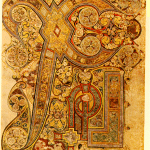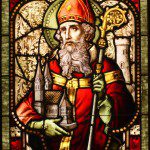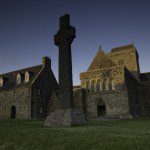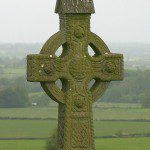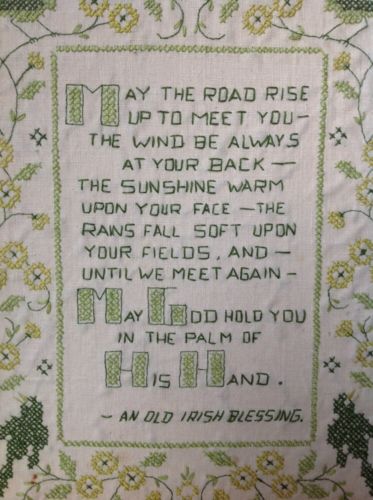
You know those Irish blessings that get needle-pointed? The ones about the road rising up to meet you and the wind being at your back?
They’re actually part of an ancient tradition in Celtic Christianity, the practice of honoring and reinforcing the sacredness of life through words.
The early Irish Christians believed that even the simplest and most commonplace of human actions should be invested with ritual and prayer. There were invocations for such seemingly mundane activities as greeting the rising sun, covering the fire at night, and getting ready for sleep.
For example, here’s a prayer calling upon angels and saints to help with the tending of cattle:
Come, Brendan, from the ocean,
Come, Ternan, most potent of men,
Come, Michael valiant, down
And propitiate to me the cow of my joy.
Ho my heifer, ho heifer of my love,
Ho my heifer, ho heifer of my love.
My beloved heifer, choice cow of every shieling,
For the sake of the High King take to thy calf.
This tradition of blessing and invocations lived on for many centuries in Ireland and Scotland. We’re fortunate to know about these oral Celtic prayers because of the work of folklorist Alexander Carmichael, who in the 19th century collected them in his Carmina Gadelica.
An emphasis on blessings and benedictions was also part of the earlier, pre-Christian Celtic world. Ian Bradley writes in Colonies of Heaven: Celtic Models for Today’s Church:
The Celts had a very strong sense of the almost physical power of the spoken word both to heal and to harm. The Irish file (poet) was thought to have two compartments in his tongue, one for honey and the other for poison. This was one of the main reasons why the Celts were so reluctant to write things down and maintained an almost exclusively oral tradition … With the coming of Christianity, this belief in the force of the spoken word and its ability to work an almost tangible effect for good or ill was not extinguished but simply integrated into the new belief system.
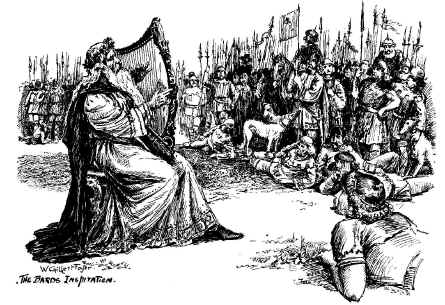
And so a Celtic blessing was not a mere pleasantry: its words had the ability to channel divine grace. Other equally powerful prayers, known as breastplates or loricas, could cast a circle of protection against evil.
The well-known hymn St. Patrick’s Breastplate illustrates this long Celtic tradition. Its opening words are an incantation: “I bind unto myself today.” It then calls upon many powers for protection, including the doctrine of the Trinity, Christ’s baptism and resurrection, and sun, moon, and wind.
To be honest, this hymn has never been one of my favorites–it’s so darn hard to sing–but having this perspective on its words gives me a greater appreciation for it. Here’s a contemporary rendition of part of the hymn, the verses invoking Christ’s presence:
All of this gives one a different perspective on all those needle-pointed Irish blessings, doesn’t it?


